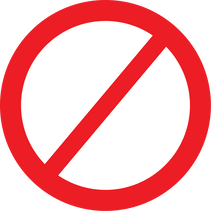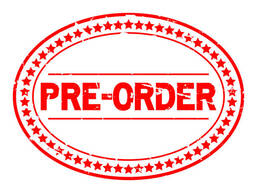|
Continuing our series of marketing blogs, which were first posted in early 2021.  While this blog starts off talking about blogging, it moves onto other topics later, so don’t be put off if blogging is never going to be your thing. As discussed last week, writing a blog is one of the ways that you can engage with potential readers in your target audience. So even if you aren't planning on blogging right now, it may be something worthy of your consideration. But we’re not just talking about written blogs like this one. It also covers things like videos on YouTube, Instagram and Tik-Tok. If you are trying to engage with a young audience, you are going to have far more success with those than you are with the written word. There are also podcasts, which are audio blogs and have a considerable following of their own, especially among people who spend a lot of time driving. So, anything you read here about blogs, transpose to those other media as well. BTW, recording a reading of a chapter of your book and posting it as a podcast is a great way of generating interest. What is a blog? Time to look in the dictionary. I came across this definition, which is good enough for my purposes: “a regularly updated website or web page, typically one run by an individual or small group, that is written in an informal or conversational style.” "What should your blog be about?" So, what should your blog be about? Lord Reith, the first Chairman of the BBC, said (long before the www was a twinkle in Tim Berners-Lee’s eye) its purpose was to “Inform, educate and entertain”. We couldn’t put it better ourselves. That is what your blog should aim to do. You can do just one of those three things or any combination of them. We hope this blog covers “educate” and “inform”, but if you are entertained as well, that’s a bonus. The important thing is that after reading our blog, readers don’t feel they have wasted their time.  If people like your blog, they will come back again for the next one. They may even look forward to the next edition eagerly. And if they are doing that, they are almost certainly going to be interested in anything else you have written. They may even sign up to your email list so that you can email them and tell them when the next blog has been posted – but be careful not to start spamming people. That’s a quick way to lose friends and followers.  The “tone” of your blog is very important, it says a lot about you and affects the way readers will perceive you. If your tone is too stiff and formal, then you will come across as “stuffy” and it may be assumed that your books will be stuffy too. On the other hand, if you are too chatty and informal, people may not take you seriously enough and, therefore, they may not take your books seriously. We’d be interested in hearing from you about what you think of our “tone”. Is it right for what we are trying to do? Is it too stiff and formal or is too laid back and relaxed? Or, is it something else? Feel free to use the comments section to let us know what you think. We have talked already about what interests, other than reading, your target audience might have and that is one thing you can use in your blogs. If your target audience is likely to be interested in dogs, then you can blog about dogs. If they are likely to be interested knitting, you can blog about knitting. If you have done your homework on your target audience, you will probably have come up with a list of things they may be interested in and you can blog about most of them, because you are interested in them too. We have a list of other possible blog topics and you can download it at the bottom of this blog.  Where can you post your blog? There are a number of websites that will allow you to host a blog for free. Some of them might try to flog you a range of other services, such as a full-blown website, but they will let you post your blogs as well, so that’s the important thing. We Googled “free blog hosting” and came up with this list, which also happens to be a blog (though not by us). Is there anything that you shouldn’t blog about?  You are trying to make friends and there are two things that will lose you friends quite quickly: politics and religion. To that I might add climate change, veganism, gender issues, conspiracy theories and a few more. I once read the following Tweet “If I’d known that Val McDermid (a popular Scottish crime writer) was a socialist, I’d never have bought any of her books”. OK, that’s a particularly extreme viewpoint, but not untypical of the sort of narrow mindedness that exists. Venture into those fields if you feel you must, but make sure they aren’t minefields. It doesn’t matter how open-minded, reasonable or rational you think you are being; you are going to alienate someone. There are times when blogging on those sorts of issues is justified. "This isn't a hard and fast rule." If you have written an exposé of a political scandal, then it may be OK to blog about politics. This is particularly true if your book is aimed at people with a specific political perspective. If your books are religious themed, then you might be justified in blogging about religion. Just be careful, that’s all we are saying. You took a lot of trouble to identify your target audience, so don’t throw it away by alienating them with one ill-advised rant about Brexit, the Pope or Greta Thunberg. You are entitled to your opinions, but not everyone will share them – even in your target audience. And please remember that once you have posted something on a blog it is there forever and, if it's a controversial view, it could come back to haunt you.  It is time consuming to write blogs and that is enough to put some people off taking that route. So, it’s a good job it isn’t the only way to engage with your potential audience. There are also chat groups and discussion forums. One of the best known of these is Mumsnet so I’m going to use them as my model, even though I’m not a Mum (I am a dad though). These groups offer the opportunity to discuss a wide range of topics that are of common interest. It is probable that if you try to plug your book there you will get kicked off, but a popular topic for discussion is “what to do during maternity leave” (as if raising a child wasn’t enough) and that is where you can drop into the conversation that a good way of using time is to write a book. You can also discuss books by other authors quite legitimately, under the appropriate thread(s). That at least allows you to let it be known that you are interested in books. "if you try to plug your book there you will get kicked off" The aim of using these chatrooms is to attract new followers to your other social media channels, where you can and do plug your books. And that is what happens when you engage with people. You turn them into friends and friends stay in touch. I’m a keen golfer myself. In researching this blog (yes, we do that), I discovered that there are some golf forums that run like Mumsnet. We also happen to publish a book about golf. Guess who’s going to join a couple of those fora as soon as they have enough time between writing blogs, promoting books and editing.  Now onto another popular way of engaging with your readers. The “freebie” or “teaser”. It is another strand of “engagement”, but one that is a bit more direct in its approach. The idea of the teaser is for potential readers to look at your work before they buy it. This ability already exists on some retail platforms with “look inside” or similar features. But they rely on you having a manuscript (MS) uploaded to the platform and on sale. What if you are still a few weeks away from getting the final version ready for launch? You want to start engaging your audience’s interest, but the book isn’t yet ready for publication. There is a facility on many retail platforms for customers to pre-order. This is great for getting a boost up the sales rankings on Amazon and other sites. If your books have been pre-ordered, then all the pre-orders get counted on the day the book goes “live”. That can catapult you up the sales rankings, which means that your book might feature in the “best-sellers” list for the day which, in turn, can lead to more sales. This is known as “momentum”. "That can catapult you up the sales rankings" And the best part is that you don’t have to have the final version of the book ready when you set up the pre-order. You can set the pre-order up a year in advance. That’s great for well-established authors who already have a loyal following eagerly awaiting the next book but, for you, a month or two in advance is all you need. But why should anyone pre-order a book when they don’t know if they will like it? Because if there’ no MS uploaded, there’s no “look inside” to read.  Because you have posted a teaser elsewhere and that has whetted their appetite. We encourage our authors to do this – and it works. One of our authors books got to 300 in the Amazon sales rankings for their book on the day it was released, thanks to pre-orders. OK, it isn’t quite Harry Potter – but it encouraged more sales on launch day. What is best practice for teasers? Well, whatever you offer has to engage the reader, so it really has to give them a flavour of what the book is about. If the first chapter or the first 10% of the wordcount does that, then that’s the bit to use, but you may want something a bit more dramatic, a bit more emotional or a bit more exciting, in which case you may want to cherry-pick from elsewhere in the book. You might even assemble a collage of extracts from different parts of the book – but for goodness sake don’t give away the ending. But the most important part is the last line of the extract. It has to be a “call to action”. This will include a link to the specific page on the website where the book can be bought or pre-ordered.  Something like “We hope you enjoyed this extract. You can find out more about “Book Title” by “Author Name” here. “Here” being the link to where the book can be bought or pre-ordered. Note that the call to action didn’t use the words “buy”, “order” or “pre-order”. This is because people may feel pressured by those words. You are just being helpful by pointing them to the place where they can find out more. If they click the “purchase” button once they get there, it must be because they have made up their own mind to do that. Of course, giving people a teaser relies on having somewhere they can download it, which usually means a website, but some social media does allow you to post things that can be downloaded. Here at Selfishgenie we have a specific Free Stuff page where our authors can post their teasers and we promote them through our social media and they promote them through theirs. There is also a website called Wattpad where you can post extracts (or even complete books) and link them to other social media or websites. In last week’s edition of this blog, we used an almost throwaway line when we said that YA readers are mainly online between 7 and 10 pm and that’s when you may be drinking your cocoa and watching Corrie and Midsomer Murders. But it isn’t such a throwaway. Reaching your audience at the right time of day is critical and we’ll be taking a closer look at that in next week’s edition. See – we even use teasers when we’re blogging. If you enjoyed this blog or found it informative, be sure not to miss next week's edition by signing up for our newsletter. We'll even send you a free ebook for doing so. Just click the button below.
0 Comments
Leave a Reply. |
AuthorThis blog is compiled and curated by the Selfishgenie publishing team. Archives
June 2025
|
||||||
 RSS Feed
RSS Feed